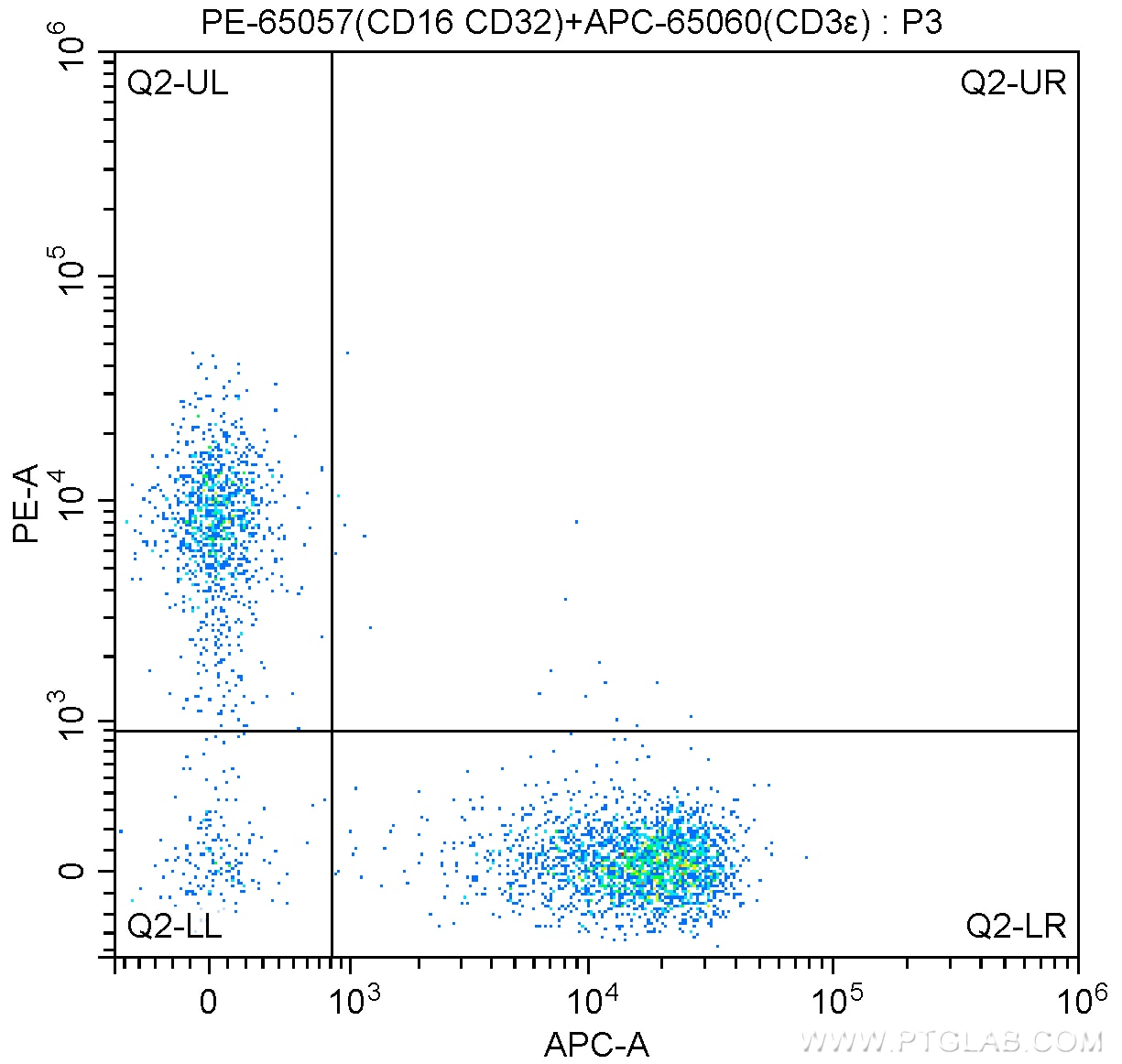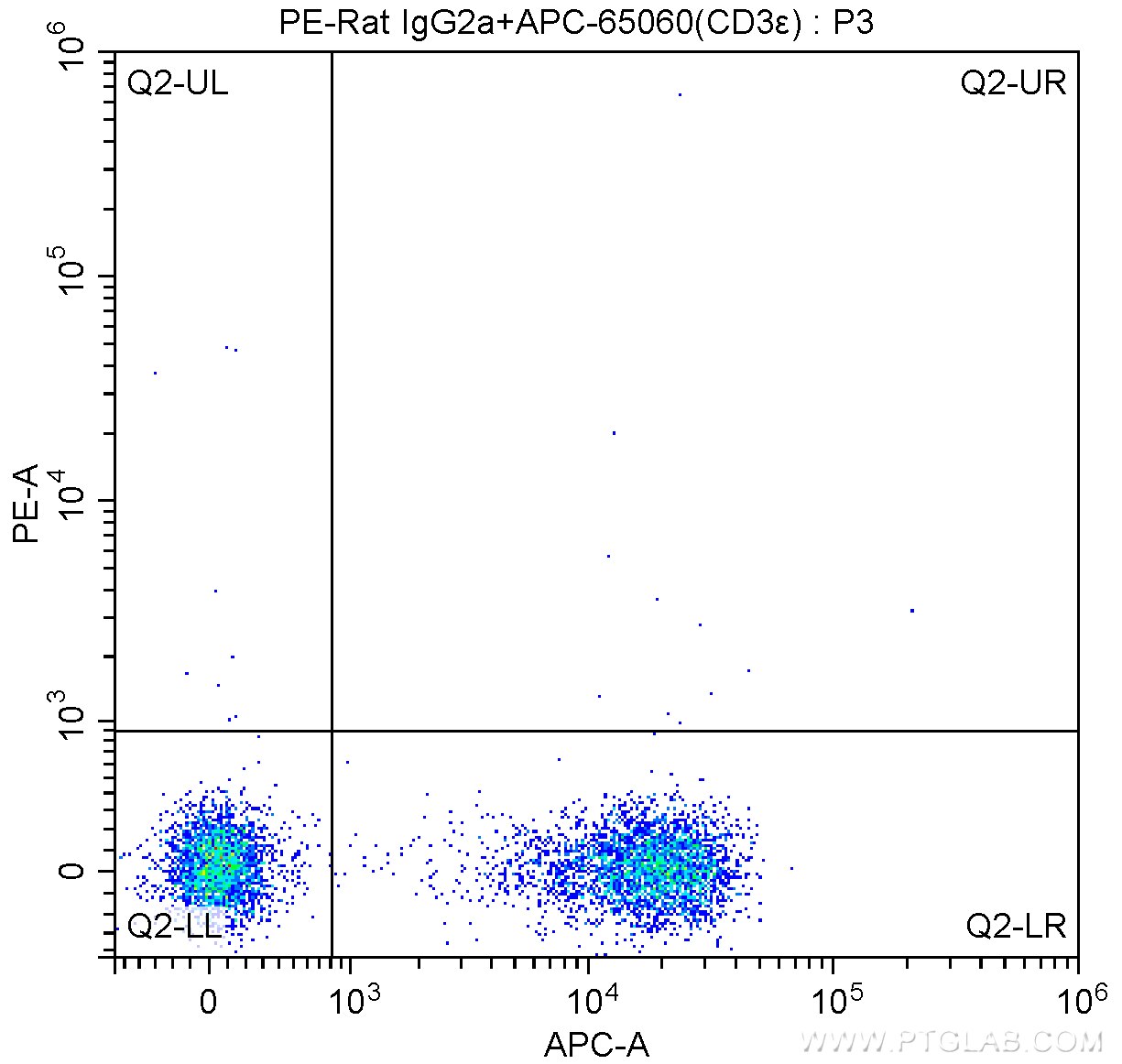CD16/32 Monoklonaler Antikörper
CD16/32 Monoklonal Antikörper für FC
Wirt / Isotyp
Ratte / IgG2a, lambda
Getestete Reaktivität
Maus
Anwendung
FC
Konjugation
PE Fluorescent Dye
CloneNo.
93
Kat-Nr. : PE-65057
Synonyme
Galerie der Validierungsdaten
Geprüfte Anwendungen
| Erfolgreiche Detektion in FC | Maus-Splenozyten |
Empfohlene Verdünnung
| Anwendung | Verdünnung |
|---|---|
| This reagent has been tested for flow cytometric analysis. It is recommended that this reagent should be titrated in each testing system to obtain optimal results. | |
| Sample-dependent, check data in validation data gallery | |
Produktinformation
PE-65057 bindet in FC CD16/32 und zeigt Reaktivität mit Maus
| Getestete Reaktivität | Maus |
| Wirt / Isotyp | Ratte / IgG2a, lambda |
| Klonalität | Monoklonal |
| Typ | Antikörper |
| Immunogen | VH81X Tg-B-Zellen und T220-Stromazelllinie |
| Vollständiger Name | Fc receptor, IgG, low affinity IIb |
| GenBank-Zugangsnummer | BC038070 |
| Gene symbol | Fcgr2b |
| Gene ID (NCBI) | 14130 |
| Konjugation | PE Fluorescent Dye |
| Excitation/Emission maxima wavelengths | 496 nm, 565 nm / 578 nm |
| Form | Liquid |
| Reinigungsmethode | Affinitätsreinigung |
| Lagerungspuffer | PBS mit 0,1% Natriumazid und einem Stabilisator. |
| Lagerungsbedingungen | Store at 2-8°C. Avoid exposure to light. Stable for one year after shipment. 20ul Größen enthalten 0,1% BSA. |
Hintergrundinformationen
CD16 (FcγRIII) is a 50-70 kDa low affinity Fc receptor found on the surface of natural killer cells, neutrophil polymorphonuclear leukocytes, monocytes and macrophages. CD16 mediates antibody-dependent cellular cytotoxicity (ADCC) and other antibody-dependent responses, such as phagocytosis. CD32 (FcγRII) is a 40 kD transmembrane glycoprotein that binds to the Fc region of IgG with low affinity. CD32 is present on phagocytic cells such as macrophages and neutrophils, and is involved in the process of phagocytosis and clearing of immune complexes.
Protokolle
| Produktspezifische Protokolle | |
|---|---|
| FC protocol for PE CD16/32 antibody PE-65057 | Protokoll herunterladen |
| Standard-Protokolle | |
|---|---|
| Klicken Sie hier, um unsere Standardprotokolle anzuzeigen |



